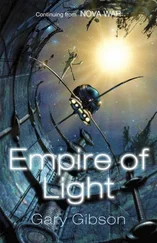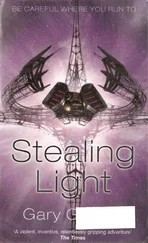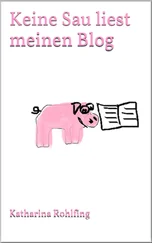“He would doff his shoes the instant he entered the house. ‘You’ve no idea what I’ve been stepping in all day,’ he’d say. He’d say farewell before shutting the door for his bath. I once found the poor man trying to read his way around a business card some thoughtless cuss had left as a bookmark midway down the page in a library book. I could see the struggle in him. The thing was slotted right into the spine, like a tiny extra page. It stuck out an angle. It was obvious he did not want to have to touch it. From where I stood, I could see the parallelogrammatic shadow it was throwing onto the left-hand page. I reached over and snatched it away. I was always the one to turn on the lamp and make sure the light fell over his left shoulder. I’d say, ‘You’ll ruin your eyes.’ And he’d say, ‘The only way to ruin your eyes is to keep looking at people.’
“So don’t think I don’t know what you two think you have,” my aunt said. “Don’t pretend you’re the first.”
I had my foot around my brother’s ankle. One of his hands was in mine; the other grasped an undrabbled handkerchief.
“He knocked you up?” I said.
“It was during one of the later years upstairs,” my aunt said. “The doctors told us it was a termless pregnancy, that the child might not ever come out, that it wasn’t going anywhere, that you see these sorts of impactions every once in a very great while, that this wasn’t the end of the world, there were ways to get around things, arrangements could be made for its tutoring, its recreations, inside of me, and for a while we kept at it, the drills, the columns of words, the recommended rhymes. But we started hearing less and less in return. ‘Pipe up!’ I would shout. It got harder to tell its baby talk, as muffled as it was, from everything else that might have been going on in my hellhole of a body proper. I think sooner or later it must have just got drowned out. I know I started shedding pounds.”
“Do you ever talk to him?” I said.
“Your father?” my aunt said.
A couple of nights later, I heard heavy luggage landing on the linoleum below. We were all three of us on the floor. My head was in my brother’s lap. I thought I was the only one awake.
“Who got the decorations out?” my father shouted from downstairs. “Who gave anyone permission to hang crepe paper?”
We lay still. I could see my aunt’s eyes unclosing themselves.
“What did I miss?” my father shouted. “Something big? Somebody thinks they had another wedding behind my back? That’s what this is about?”
I heard drawers being opened heatedly.
“What else could have happened?” my father shouted. “Look at this place.”
I heard the oven door slam.
“Which one of you?” my father shouted.
I saw my aunt raise an arm from the elbow, then start to bring it down. I kicked out my leg and caught the arm before the fist could reach the wide, booming floor.
SIMPLE
This is the simplest story. Why am I always the one to tell it?
When I was nine, an older kid said, “Hold out your hand.” Then tossed a crumpled candy-bar wrapper into my obediently cupped palm.
Walked away, laughing.
I decided to let the wrapper stay put.
Out of spite, or what?
I grew up, rented a room, worked, rode escalators, figured out where and where not to insert myself.
People kept looking at the wrapper in my hand and saying, “Here, let me take care of that for you,” or “Are you looking for something?”
I kept waiting for somebody to say something in a language that wasn’t shot.
CONCENTRATION
There was eventually a little something wrong with the son, too, though nothing so bad as with the daughter. The parents ordered corrective shoes and sat up late one night, writing and recopying and then laminating a note to be passed among all of his teachers.
The teachers read the note and placed the son at a special desk, where they quizzed him about kings and invertebrates. He answered bodily, and correctly.
He came home having been taught how to answer the telephone in a telephone voice.
“Speaking,” he had been taught to say.
His one big break was being told he needed eyeglasses — an encumbering portable fenestration that made props of his nose and ears. It was not so much that the world was now filled in more tidily (things were less destitute of outline, less likely to drown within themselves before they arrived in the thick of his eye) as that he felt he had acquired a wicket about himself, a little cage up front through which business could get quickly and fittingly done.
I WAS SURER OF THINGS
Try it this way: there was a woman who betrayed me with a man who had opened a factory in which it was suggested that the workers make things out of glass. The man did not believe in pushing people. He never once looked over anyone’s shoulder.
The man had no luck in hiring the woman’s children.
They lived off their mother and grew demandingly lovely on two slipcovered sofas pushed together end to end.
Coarse, dandelionish tufts of fabric sewn at intervals into the slipcovers left pink imprints on their cheeks, their foreheads.
I later liked to watch them walking ably away from me but not yet toward each other.
I will not give you any of the gore.
EMPLOYMENT
I’m looking for work in this room, naturally. I’m desiring lots of work in this room. I’m very serious about my desire.
I go up to the guy. “Is there work?” I ask.
“I would imagine,” he says. He shows me to the desk. It’s the same old desk, my desk.
I pull out the chair and sit down.
I open one of the drawers. I find my underwear and socks exactly where I keep them. I open another and find my health-and-beauty aids.
The guy says, “You get dental, eyeglass, life insurance, major medical, death and dismembership, two weeks’ paid vacation, seven paid holidays, fifteen paid sick days, personal days TBA. Employee pilfering is the retail sector’s filthiest of secrets. Lift with your whole body, not with your limbs. Don’t just be a people person — be a person’s person. Come in through the employees’ entrance and breathe out through your nose. This concludes the orientation.”
I reach for a pen.
He slaps my hand hard.
“Just do what you’d be doing anyway,” he says. “Only now it’s going to be work.”
SPEAK UP
She wants to know what he saw in her, so I reach right in for it, pluck it out, and hand it to her. It’s a grammatical occurrence of something big, something way out of scale.
This is a conversation we’re having, an incident. She is hemming his trousers, the six pair he left behind. I have been encouraging her to wear them herself — one pair per day of the week, time off on Wednesday, middle of the week, in case she runs out of anecdotal material.
In short, I tell her, Hate him.
But she wants to know what if he calls, what if he comes back, what if they’re both shopping for memo pads in the same micromart.
Skip it, I tell her.
To be fair, what goes where? In terms of my life, where should this be taking up places?
The only way this keeps going is if you speak up.
Tell me something.
Tell me every other thing.
How’s every other thing?
THIS STORY
This story has two parts.
The first is about his last love — how he got circumstanced in it, and all the antiperspirants and behaving and abbreviations it later came to entail. This part is long — much too long for me to include or even synopsize here — and it darts out at this or that. Please do not hold it against me if I pretend that this part of the story was misplaced or, better, put aside to boil.
Читать дальше












